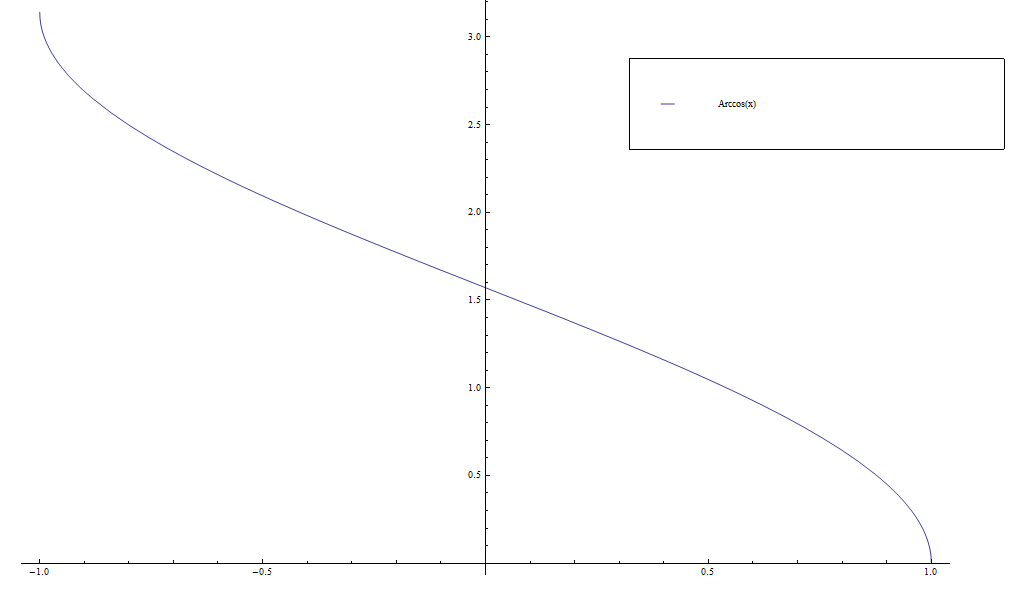Difference between revisions of "Arccos"
From specialfunctionswiki
(→Properties) |
|||
| Line 10: | Line 10: | ||
$$\dfrac{d}{dz} \mathrm{arccos}(z) = -\dfrac{1}{\sqrt{1-z^2}}$$ | $$\dfrac{d}{dz} \mathrm{arccos}(z) = -\dfrac{1}{\sqrt{1-z^2}}$$ | ||
<div class="mw-collapsible-content"> | <div class="mw-collapsible-content"> | ||
| − | <strong>Proof:</strong> █ | + | <strong>Proof:</strong> If $y=\mathrm{arccos}(z)$ then $\cos(y)=z$. Now use [[implicit differentiation]] with respect to $z$ to get |
| + | $$-\sin(y)y'=1.$$ | ||
| + | Substituting back in $y=\mathrm{arccos}(z)$ yields the formula | ||
| + | $$\dfrac{d}{dz} \mathrm{arccos}(z) = -\dfrac{1}{\sin(\mathrm{arccos}(z))} = -\dfrac{1}{\sqrt{1-z^2}}.$$ | ||
| + | █ | ||
</div> | </div> | ||
</div> | </div> | ||
Revision as of 23:08, 25 October 2014
The $\mathrm{arccos}$ function is the inverse function of the cosine function.
Properties
Proposition: $$\dfrac{d}{dz} \mathrm{arccos}(z) = -\dfrac{1}{\sqrt{1-z^2}}$$
Proof: If $y=\mathrm{arccos}(z)$ then $\cos(y)=z$. Now use implicit differentiation with respect to $z$ to get $$-\sin(y)y'=1.$$ Substituting back in $y=\mathrm{arccos}(z)$ yields the formula $$\dfrac{d}{dz} \mathrm{arccos}(z) = -\dfrac{1}{\sin(\mathrm{arccos}(z))} = -\dfrac{1}{\sqrt{1-z^2}}.$$
█
Proposition: $$\int \mathrm{arccos}(z) dz = z\mathrm{arccos}(z)-\sqrt{1-z^2}+C$$
Proof: █
Proposition: $$\mathrm{arccos}(z)=\mathrm{arcsec} \left( \dfrac{1}{z} \right)$$
Proof: █

